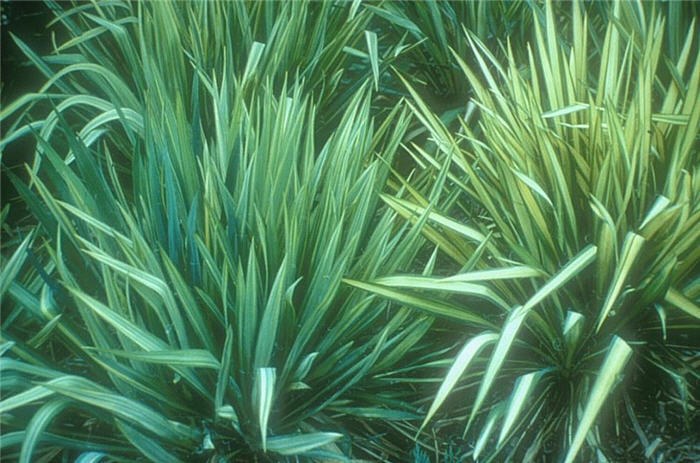| Botanical Name: Yucca filamentosa 'Golden Sword' | |
| Common Name: Golden Sword Yucca |

-
Anatomy
-
Culture
-
Design
Plant Type
Broadleaf Evergreen, Shrub
Height Range
3-6'
Flower Color
White
Flower Season
Spring
Leaf Color
Grey Green, Yellow, Variegated
Bark Color
n/a
Fruit Color
Red
Fruit Season
Summer, Fall
Sun
Full
Water
Very Low, Low
Growth Rate
Moderate
Soil Type
Sandy, Clay, Rocky
Soil Condition
Average, Poor, Well-drained, Dry
Soil pH
Basic
Adverse Factors
Invasive
Design Styles
Formal, Japanese, Mediterranean, Ranch, Spanish
Accenting Features
Fragrance, Showy Flowers, Silhouette, Unusual Foliage, Unusual Shape
Seasonal Interest
Winter, Spring, Summer, Fall
Location Uses
Background, Shrub Border, Foundation, Walls / Fences, With Rocks
Special Uses
Hedge, Screen, Mass Planting, Naturalizing, Small Spaces
Attracts Wildlife
Birds, Hummingbirds
Information by: Stephanie Duer
Photographer:
Photographer:
-
Description
-
Notes
This evergreen yucca will grow 3 to 4 feet tall and 5 feet wide, with rosettes of stiff, narrow green leaves with golden yellow centers. Flower spires, 4 to 6 feet tall, arise out of the clumps, covered in fragrant, ivory white blooms. Provides dramatic architectural interest and winter presence. Use is sunny borders, against south or west facing walls and fences, or in rock gardens.
Grow in well drained, sandy-gravelly soil in full sun, though is surprisingly tolerant of some part shade. No maintenance is needed, though you can remove the flower scape after the plant has finished blooming. The leaves are spiny, so plant it where it won't interfere with a walkway. Yucca are clumping, and so in time will form large colonies.